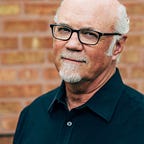What Do You Want in a Writing Book?
Tell me what would help or inspire you most in your writing life.
If you were looking for the best book about the practice of writing — a craft or instructional or even inspirational book on the art of writing — what would you want? What are you looking for? What would help you? Inspire you? What would be the ultimate writing book for you?
I’m hoping you can help me answer these questions.
I have been teaching writing for a large part of my life. At the university level, as a mentor, in workshops, and currently at Gotham Writers in New York. And I’ve published several books of memoir and fiction — nearly all traditionally published. I’ve won awards for both my writing and for teaching. So, I think I might have some good things to say about the craft, some of it might be quite helpful for any level of writer. Some of my approaches might be a bit unusual, but my thoughts on the writing life are the reasons I write here at The Writer Shed and I might be able to offer something good.
But what would be better or more helpful than the hundreds of other books about writing? What is missing? What do YOU want that you haven’t found?
There are many classic books on the art of writing that are essential to any writer’s education. So, maybe it has all been said. But when I work with students and try to understand their goals, I wonder if there isn’t something missing. I wonder if somehow the joy of writing has been lost.
Before I began to see writing as a way of life, to take it seriously as a form of artistic expression or the practice of self-examination, before it became a daily discipline, I had thought of the writing process as work. Not arduous or unwanted work, but work, nonetheless. I was a journalist and writing daily stories was my occupation, and so writing was my job.
In my forties, I took a break from chasing mayors, fires, crime, and whatever else filled the news headlines that day, and began a teaching career. My first experience led to my first book. Accidental Lessons was the story of my transformation through the relationships with young, impoverished students, but it was also the beginning of my true writing life, the one I know now. Writing shifted from work to a joyful practice and writing became my identity.
Socrates, at his trial for impiety and corrupting youth, is believed to have uttered this famous dictum: “The unexamined life is not worth living.” I believe in those words. And so, writing became my way to examine, first in personal essays, and soon more memoir. Fiction followed, which I found was also a form of self-examination realized through invented stories. Soon, I was teaching at the university level and mentoring other writers as the Writer-in-Residence at the Jack Kerouac Project in Orlando, Florida and at the Ernest Hemingway Birthplace Home and Museum in Oak Park, Illinois. I held workshops and seminars for writers. I began teaching regularly at Gotham Writers, New. And through it all, I kept writing and publishing. In time, I saw myself no longer as a journalist, but as a writer and teacher. My true writing life had taken full shape.
But over my decades of teaching, I began to see a troubling pattern among my creative writing students, one I believed was unhelpful, even debilitating, and holding them back. Many students saw writing, much like I did early on, as a hard and laborious discipline. They clung to the words of Ernest Hemingway:
“There is nothing to writing. All you do is sit down at a typewriter and bleed.”
Many students eventually gave up. Not because they didn’t want to write, but because they were weighed down by the misguided belief that writing was supposed to be work—hard work—painstaking, backbreaking, laborious.
There was no joy in it.
That got me thinking: How can I get writers to fall in love with writing, how can I help them create with confidence, purpose, and passion? And this is where I am now: What can I offer through my myriad experiences in writing that can help turn the work of writing into the joy of writing?
Not every aspect of this creative process is a joyful one, certainly. But I believe writing is ultimately a joyful act. Telling stories is utterly human. We’ve been doing it since the dawn of time. And if you embrace writing with that ancient tradition and as the joyful act that it instinctively is, it can lead to incredible transformations not only in your writing, but in your overall artistic outlook, and even in your personal well-being.
Nearly every morning of my life, I open the door to my writing shed — a small building at the back of my property — to write. Some days it’s more than a thousand words. Other days it’s a simple poem or a haiku. Whatever it is, it is done with joy. It’s a privilege to be able to express yourself in this way, to embrace the practice as if it were sustenance for one’s best life.
So, what would help you? If you were to build the writing book that would best help you, what would it be?
Please drop me a thought or two in the comments below. I would love to know what kind of writing book would be the one that just might turn your writing life around.
David W. Berner is the author of several award-winning books of memoir and fiction. He has been teaching writing for more than twenty-five years.
